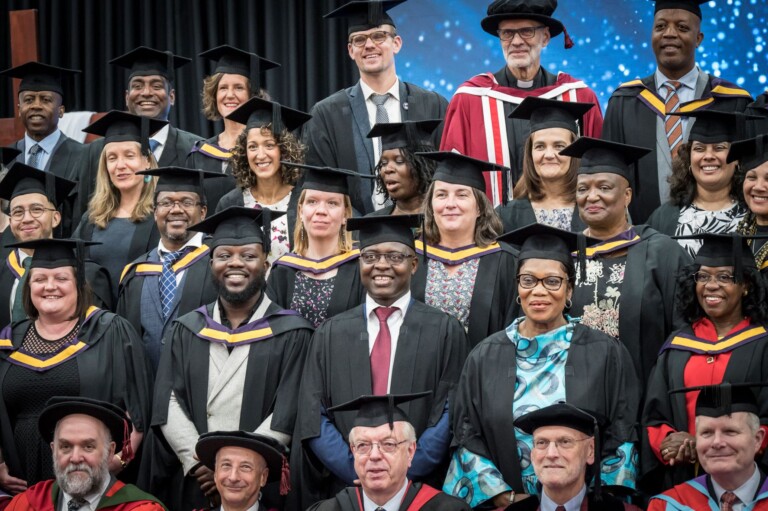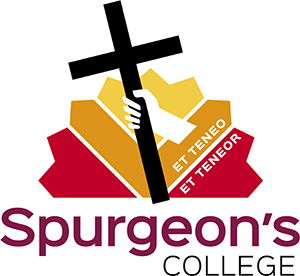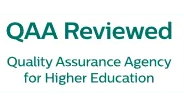
BA in Theology
Our Undergraduate programme at Spurgeon’s College is designed to serve our College’s aim to prepare women and men for mission and ministry in today’s world. The programme offers you the opportunity to explore biblical, historical, theological, and applied subjects in a supportive confessional context that encourages you to develop academic, practical and generic skills as well as Christian character and acts of service.
The Church today faces new challenges and this new degree programme has taken on board the nature of those challenges. It offers a diverse but integrated curriculum which delivers a training programme which is academically credible, relevant to the world today and both accessible and inclusive to the wide range of students who come to study with us.
Which study options are right for you?
Which route?
There are three routes available to you:
| Title | Award |
|---|---|
| BA in Theology | SINGLE HONOURS degree |
| BA in Theology with Ministerial Formation | HONOURS WITH degree |
| BA in Theology with Chaplaincy | HONOURS WITH degree |
The “Honours with” degrees are recognised by the Baptist Union of Great Britain as qualifications which may lead to accredited ministry.
Students may be permitted to transfer from one route to another. The processes are outlined in detail in the Student Transfer Policy. Transfers will be considered on a case-by-case basis and will normally be arranged at a point where a student completes a level of the Degree programme. The usual admission requirements for each route will apply.
All three routes sit within one overall Undergraduate Degree structure. Students on the “Single Honours” route will have the most flexibility in terms of choice of units; students on the “Honours With” routes that lead to professional roles will inevitably have less flexibility.
Which pattern of study?
| Title | Available Study Patterns |
|---|---|
| BA in Theology | Full-time Part-time Distance Learning |
| BA in Theology with Ministerial Formation | Full-time Part-time (Mid-week or Saturday) |
| BA in Theology with Chaplaincy | Full-time Part-time (Mid-week or Saturday) |
If you study full-time, it will normally take you 3 years to complete your degree; if you study part-time or on a distance learning basis, you will normally take 6 years to complete your degree.
Programme Structure
Your programme will consist of Core units (which all students take) and Optional units. If you follow the Single Honours programme there is one further unit which you must take at each level (the interdisciplinary unit); if you study on one of the accredited routes (Ministerial Formation and Chaplaincy) there are compulsory units which you must take as part of your professional training.
Core Units
This tables lists the core subjects you will study:
| LEVEL 4 Full-time – year 1 Part-time – years 1&2 Distance Learning – years 1&2 | LEVEL 5 Full-time – year 2 Part-time – years 3&4 Distance Learning – years 3&4 | LEVEL 6 Full-time – year 3 Part-time – years 5&6 Distance Learning – years 5&6 |
|---|---|---|
| Theology, Exegesis and Study Skills | Doctrine and the Contemporary Context | Dissertation or Short Dissertation |
| Introduction to the Bible | Exploring the OT | Bible, Theology and Spirituality |
| Christianity: The Story of Belief | Exploring the NT | Ethics and the Story of the Christian Church |
| Mission, Church and Community | Evangelism, Apologetics and the Story of the Christian Church | World Religions and Ideologies |
| Theological Reflection: Learning from Paul as a Reflective Missional Leader | Justice | |
BA (Hons) in Theology
If you are looking to study for a degree in Theology on completion of your A levels, or as a more mature student, we offer you the advantages of a course in a confessional Christian context which does not assume that you want to prepare for formal Christian ministry of some kind. It allows you to study some of the same biblical, theological, historical, missional, ethical and pastoral topics as vocational students with further options such as philosophy or Theology and the Arts. There is no church placement.
Students may follow this route in either of two patterns: full-time, attending college for up to three days a week or part-time which is normally one day, or online by distance learning. We are also offering the part-time version of this course on Saturdays. Full-time students have three years to complete. Part-time students have up to six years to complete.
Studying Theology can help you develop your critical, analytical, interpretative and communication skills, equipping you for many different careers. The part-time options allow you to develop your knowledge and sharpen your skills while continuing in your regular employment or ministry. Studying by distance learning provides a very flexible option for those otherwise engaged during the week.
In addition to the core units above, those on the BA (Hons) in Theology would follow the pattern below.
| LEVEL 4 | LEVEL 5 | LEVEL 6 |
|---|---|---|
| Compulsory Unit: The Practice of Faith in a Digital Age | Compulsory Unit: The Environment | Compulsory Unit: Disability Theology |
| Choose two options: | Choose two options: | Choose one or two options: |
| Foundational Skills for Missional Ministry | Denominational and Ecumenical Studies | Enterprise and Innovation in Mission |
| Philosophy and Christian Worldviews | Church History Specialism: History of Biblical Interpretation | Nomadic Faith |
| Faith and Politics | Theology and The Arts | The Life and Influence of C.H. Spurgeon |
| Discerning Your Call in the Mission of God | Place and ‘Place-Making’ in Missional Practice | Language Specialism: Advanced Hebrew |
| History, Theology and Workplace Chaplaincy | Language Specialism: Advanced Greek | |
| Making Disciples Within and Beyond the Church | ||
| Theology and Science | ||
| Chaplaincy and Pastoral Care | ||
BA (Hons) in Theology with Ministerial Formation
The Vocational Route.
This route will give you all the grounding you need for Christian mission and ministry. It contains units on biblical, theological, historical, missional, ethical and pastoral topics. A placement in a local church forms part of the training. Those preparing to be ministers accredited by the Baptist Union of Great Britain follow this route, but we welcome students from other denominations.
Students may follow this route full-time over three years or part-time over six years. Full-time students attend college for a minimum of two days per week, with an assessed placement which occupies up to three days per week. The balance between academic study and time in the placement can vary according to a particular student’s needs and situation; some students are church-based, with their placement work taking up approximately half their time, and others are college-based, with their placement work taking up approximately one-sixth of their time. Part-time students attend college for a minimum of one day per week but also need to allow time each week to prepare for lectures and study for their assignments. We are also offering the part-time version of this course on Saturdays, which may suit those who are unable to attend lectures mid-week.
In addition to the core units above, those on the ministerial formation track would follow the pattern below.
| LEVEL 4 | LEVEL 5 | LEVEL 6 |
|---|---|---|
| Interdisciplinary unit: Practical Training L4 | Interdisciplinary unit: Practical Training L5 | Interdisciplinary unit: Practical Training L6 |
| Effective Christian Leadership | Denominational and Ecumenical Studies | Choose one unit from these two options: |
| Foundational Skills for Missional Ministry | Developing Skills for Missional Ministry | Enterprise and Innovation in Mission OR Making Disciples Within and Beyond the Church |
| AND one of the following: | ||
| Language Specialism: Advanced Hebrew | ||
| Language Specialism: Advanced Greek | ||
| The Life and Influence of C.H. Spurgeon | ||
| Theology and Science | ||
| Chaplaincy and Pastoral Care |
BA (Hons) in Theology with Chaplaincy
The Vocational Route
This route will give you all the grounding you need for Christian mission and ministry, but in years 2 and 3 allows you to specialise in chaplaincy whilst still training on the ministerial formation route. It contains units on biblical, theological, historical, missional, ethical and pastoral topics. A placement in a local church/chapliancy forms part of the training. Those preparing to be ministers accredited by the Baptist Union of Great Britain follow this route, but we welcome students from other denominations.
Students may follow this route full-time over three years or part-time over six years. Full-time students attend college for a minimum of two days per week, with an assessed placement which occupies up to three days per week. The balance between academic study and time in the placement can vary according to a particular student’s needs and situation; some students are church-based, with their placement work taking up approximately half their time, and others are college-based, with their placement work taking up approximately one-sixth of their time. Part-time students attend college for a minimum of one day per week but also need to allow time each week to prepare for lectures and study for their assignments.
In addition to the core units above, those on the chaplaincy track would follow the pattern below.
| LEVEL 4 | LEVEL 5 | LEVEL 6 |
|---|---|---|
| Interdisciplinary unit: Practical Training L4 | Interdisciplinary unit: Practical Training L5 (split church and chaplaincy setting) | Interdisciplinary unit: Practical Training L6 (Chaplaincy setting) |
| Effective Christian Leadership | Denominational and Ecumenical Studies | Chaplaincy and Pastoral Care |
| Foundational Skills for Missional Ministry | Developing Skills for Missional Ministry | Chaplaincy Skills |
| History, Theology and Workplace Chaplaincy |
NB Although options are limited if you follow a “with degree” route, all students are able to choose an additional elective unit each year on an audit basis.
Further information about the “with degree” routes (including how the practical training units work) is available in the Accreditation Handbook.
Those who for any reason cannot complete the whole degree or would prefer to finish their studies earlier may gain a Certificate of Higher Education in Theology after completing one level of study, or a Diploma of Higher Education in Theology after completing two levels of study.
How much does it cost?
You can find a breakdown of current fees by course type here.
A deposit of £300 and registration fee of £450 is payable when accepting an offer.
Visit our funding page for more information on funding your course and special bursaries.



